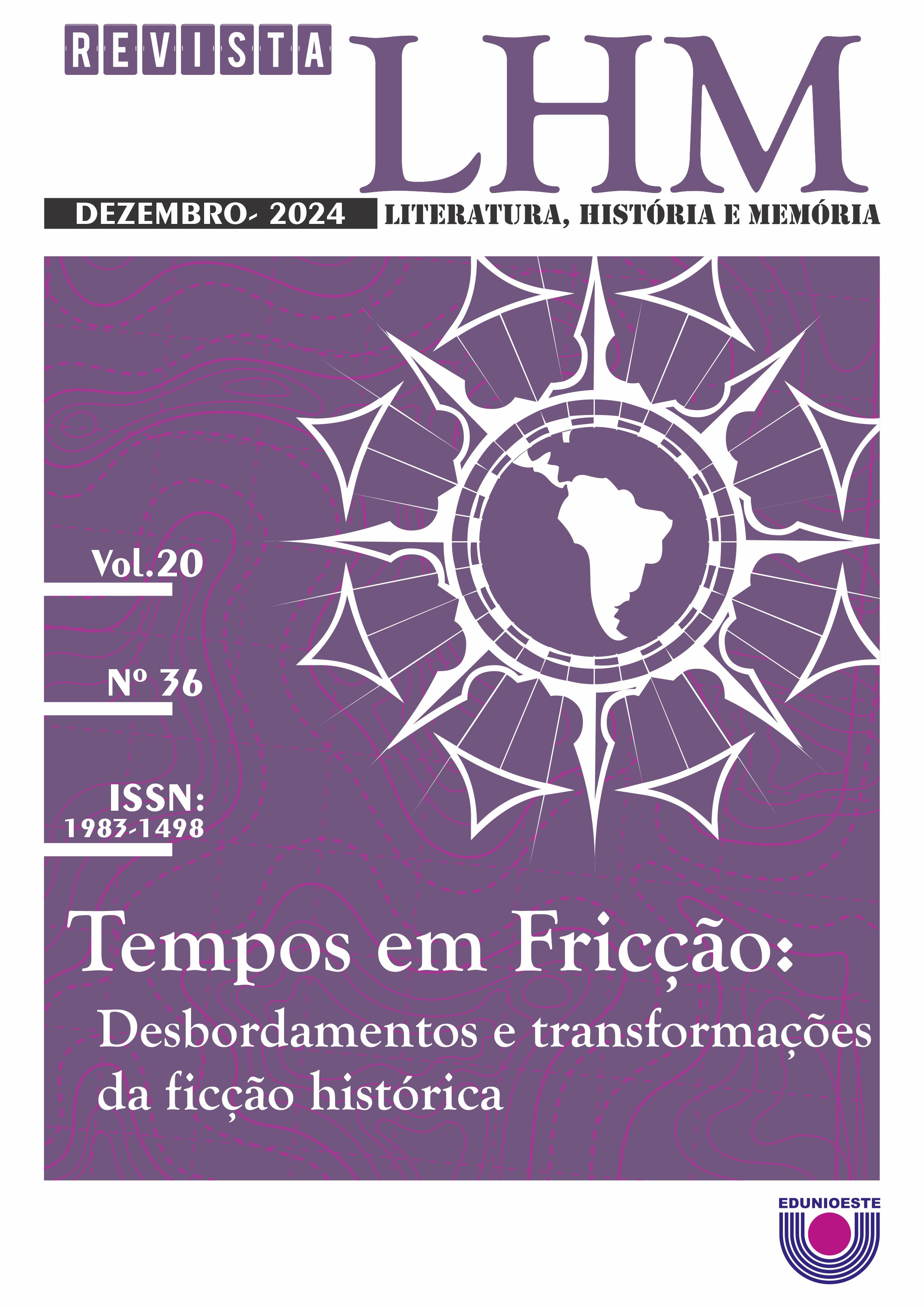Individual and Collective Memory
Melhor não contar by Tatiana Salem Levy
DOI:
https://doi.org/10.48075/rlhm.v20i36.33870Abstract
This work attempted to analyze the resources used by Tatiana Salem Levy in her most recent work, Melhor Não Contar (2024), to interlace individual and collective memory. The author emphasizes the use of the diary as a tool to continue silencing women, at the same time as she reveals the sexual harassment she suffered during childhood and adolescence at the hands of her stepfather. Advised to maintain silence about the case, more than twenty years after the death of her mother, Tatiana externalizes her unique experience and, in parallel, verbalizes issues that permeate women's experience in patriarchal societies. This is a book that breaks the imposed silence and raises issues that are indispensable for the reaffirmation of women as political and historical subjects. For the investigation, the historical perspective of Michelle Perrot (2007) and the thought of Jacques Rancière (2023) were essential. Joel Candau's (2018) work was the basis in terms of the memory perspective adopted here, while Florencia Garramuño's (2014) research was fundamental regarding the resources used to compose contemporary narratives, such as the destructuring of literary genres, the fragmentation of the narrative, the exposure of intimacy, the use of other resources such as photography and archives.
Downloads
Published
How to Cite
Issue
Section
License

This work is licensed under a Creative Commons Attribution-NonCommercial-ShareAlike 4.0 International License.
Aviso de Direito Autoral Creative Commons
Política para Periódicos de Acesso Livre
Autores que publicam nesta revista concordam com os seguintes termos:
1. Autores mantém os direitos autorais e concedem à revista o direito de primeira publicação, com o trabalho simultaneamente licenciado sob a Licença Creative Commons Attribution que permite o compartilhamento do trabalho com reconhecimento da autoria e publicação inicial nesta revista.2. Autores têm autorização para assumir contratos adicionais separadamente, para distribuição não-exclusiva da versão do trabalho publicada nesta revista (ex.: publicar em repositório institucional ou como capítulo de livro), com reconhecimento de autoria e publicação inicial nesta revista.
3. Autores têm permissão e são estimulados a publicar e distribuir seu trabalho online (ex.: em repositórios institucionais ou na sua página pessoal) a qualquer ponto antes ou durante o processo editorial, já que isso pode gerar alterações produtivas, bem como aumentar o impacto e a citação do trabalho publicado (Veja O Efeito do Acesso Livre).
Licença Creative Commons
Esta obra está licenciada com uma Licença Creative Commons Atribuição-NãoComercial-CompartilhaIgual 4.0 Internacional, o que permite compartilhar, copiar, distribuir, exibir, reproduzir, a totalidade ou partes desde que não tenha objetivo comercial e sejam citados os autores e a fonte.


